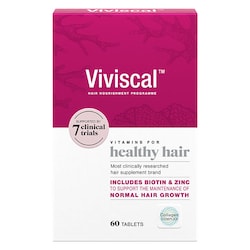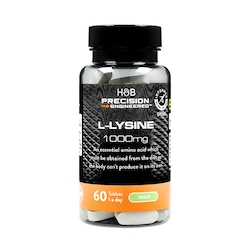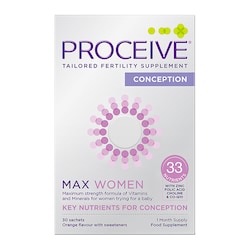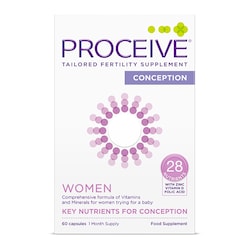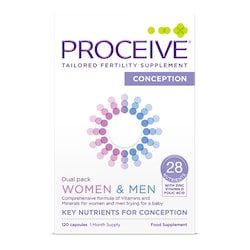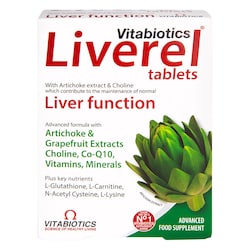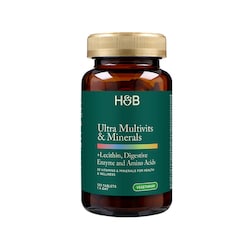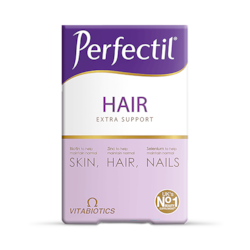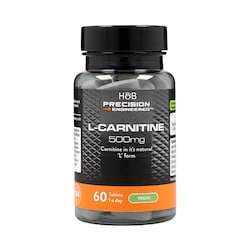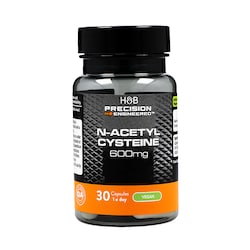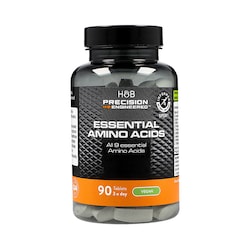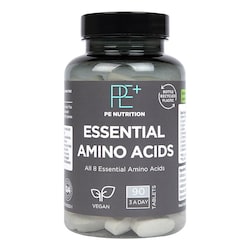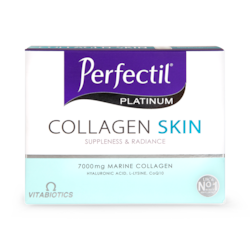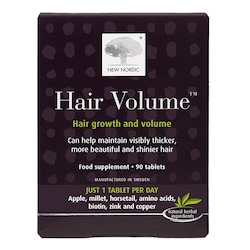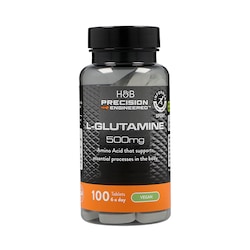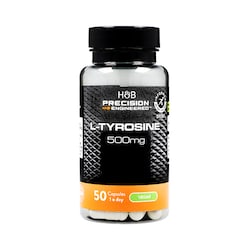15% off £30 OR 20% off £40
Code:DECIDE
The ultimate guide to L-arginine

Heard the buzz about L-arginine? From gym buffs to wellness experts, let's unpack what this powerful amino acid really brings to the table
Summary
1What does L-arginine do?
These are some of the possible processes L-arginine is involved in when produced by the body, such as…
2Possible L-arginine benefits
L-arginine supplements often take centre stage for their potential benefits, but science doesn’t fully back all claims…
3Sources of L-arginine
L-arginine boasts several potential benefits, but how do you get your hands on this amino acid?
Are you looking to power up your workout performance, boost your circulation or feel more energised? If so, L-arginine may be able to help.
From potentially enhancing blood circulation and blood pressure, to supporting your health and wellness, L-arginine is an amino acid that may be beneficial for you.
What is L-arginine?
L-arginine is an amino acid, one of the molecules that combine together to form proteins. Amino acids and proteins are the building blocks of life, snapping together to construct everything from your muscle cells to your enzymes.1,2
L-arginine is what we call a ‘semi-essential amino acid’.1
Semi-essential means that your body usually makes enough of it on its own (primarily in the kidneys).3 However, during certain periods of growth, such as adolescence and pregnancy, or when recovering from injury or trauma, your body may have additional needs for L-arginine which it usually takes from l-arginine-rich food sources.1
What does L-arginine do?
Some experts suggest L-arginine is involved in several biological processes, some of which may enhance exercise and athletic performance. Although evidence is limited and conflicting for supplementing l-arginine for these benefits.3
These are some of the possible processes L-arginine is involved in when produced by the body:1,3-5
- protein building: L-arginine is one of 20 amino acids that are necessary for synthesising all the proteins in your body
- nitric oxide (NO) production: some L-arginine transforms into NO. NO is a signalling molecule that serves as a messenger in your body for various bodily processes and functions. It helps your blood vessels to widen and relax, improving blood circulation and delivering oxygen and nutrients to your muscles
- waste product removal: the increased blood flow from NO may help flush out some of the nasty stuff, such as lactate and ammonia, that can build up in your muscles, causing that tired, heavy feeling after exercise
- creatine synthesis: L-arginine also helps produce creatine, which helps your muscles to produce more energy during physical activity. It may give your muscles a little extra ‘oomph’ when you’re pushing through those last reps at the gym
In short, L-arginine has multiple mechanisms it’s involved in and may improve some bodily processes. However much more research is needed across all of these!

Possible L-arginine benefits
L-arginine supplements often take centre stage for their potential benefits, but science doesn’t fully back all claims.
However, many people still swear by it for various reasons, and some of the below research points to promising results. Here are a few areas where L-arginine might give you a boost.5
L-arginine may help to reduce resistance in the blood vessels which can lower blood pressure.6-8
Research shows that L-arginine may keep your blood pressure in check regardless of whether you have normal or elevated blood pressure to start with. However, more well-structured studies are needed to fully understand how L-arginine affects blood pressure.7
L-arginine’s role in NO production could potentially benefit individuals with erectile dysfunction. By boosting blood flow to the reproductive organs, L-arginine may make it easier to achieve and maintain an erection.9,10
Pairing L-arginine with phosphodiesterase type 5 inhibitors (PDE5Is) or pine bark extract, may offer even more effective results according to a recent review of emerging research. Studies say that these combinations may further enhance sexual desire and satisfaction.11,12
However, the jury is still out. More well-designed studies with larger groups of people are needed to confirm the effectiveness of L-arginine for erectile dysfunction.9
May enhance athletic performance
L-arginine’s potential benefits may also extend to your workouts. More oxygen and nutrients to your muscles may help you go further, push harder and recover faster. However, research into how it affects athletic performance is limited and different fitness levels, age and gender play an important role too.
Need an energy surge for those last few reps? L-arginine also supports creatine production, which may give your muscles the extra fuel they need to smash through high-intensity exercise.13,14
That said, the results from studies are mixed. While some athletes find L-arginine works for them, others see less of a boost, particularly if they’re already in top shape.13,14
Sources of L-arginine
L-arginine boasts several potential benefits, but how do you get your hands on this amino acid?
The good news is that you don’t need to hunt for exotic ingredients – L-arginine is likely found in plenty of foods you already have in your fridge or food cupboard.15 If not, L-arginine supplements are an option.
10 of the best L-arginine foods
Here are 10 foods that pack a punch when it comes to L-arginine content:
- mackerel: not only is mackerel rich in omega-3s, but it also offers a solid 2g of L-arginine per 140g portion16
- salmon: a 140g serving of salmon provides around 1.85g of L-arginine17
- chicken breast: a 90g portion of chicken breast contains 1.68g of L-arginine, providing a protein-packed way to boost your L-arginine intake18
- pork loin: a 90g serving of pork loin delivers 1.63g of L-arginine19
- pumpkin seeds: a small 30g handful of these crunchy seeds contain an impressive 1.61g of L-arginine20
- turkey breast: not just for Christmas, turkey breast is a rich source of L-arginine. You’ll get around 1.38g per 90g serving21
- chickpeas: this is one for the hummus lovers. Chickpeas offer 1.25g of L-arginine per 150g serving22
- lentils: a 150g portion of lentils provides 1.05g of L-arginine – a perfect addition to soups or stews23
- peanuts: want to get more L-arginine on the go? A snack containing 30g of peanuts provides 0.92g of L-arginine24
- edamame beans: these tender beans offer 0.80g of L-arginine per 80g serving. Edamame beans make a great plant-based snack or side dish25
How much L-arginine should you take?
Most individuals get around 4–6g of L-arginine daily through their diet, thanks to consuming foods such as fish, chicken, soy protein like tofu and nuts.26
While studies to support the benefits of supplemental L-arginine are sparse and often conflicting, some people may consider adding L-arginine supplements to their diet.3
Research indicates that taking 9g of L-arginine supplements daily for several days or weeks is generally well tolerated, but the safety of taking high doses of it for more than three months is unknown.3 More long-term safety data is needed to determine a tolerable upper intake level.27
L-arginine side effects
Although L-arginine is generally safe, especially from food sources, supplementation may cause side effects such as nausea, vomiting and diarrhoea.6
As with any dietary supplements, check with your doctor or specialised dietician before taking L-arginine for the first time and if you have a health condition.
The final say
L-arginine is an amino acid that your body uses for various processes. It’s found in plenty of everyday foods, such as salmon, chicken, chickpeas and peanuts. Some people use L-arginine supplements for a potential edge at the gym or to support their overall wellness. While the scientific support isn’t rock-solid, some studies do find it might be beneficial.8,13,14
If you’re curious to try L-arginine, start by adding L-arginine-rich foods to your diet. If you have any underlying health conditions or are taking medication, consult a healthcare professional before taking L-arginine.
Interested to know whether L-arginine could help boost your athletic performance? Check out our article on L-arginine’s impact on endurance.
The advice in this article is for information only and should not replace medical care. Please check with your GP or healthcare professional before trying any supplements, treatments or remedies. Food supplements must not be used as a substitute for a varied and balanced diet and a healthy lifestyle.
While we strive for accuracy and balance, please be aware that this article may discuss products available for purchase through Holland & Barrett. Consult a healthcare professional before making any health-related decisions.
- Lopez MJ, Mohiuddin SS. Biochemistry, essential amino acids. Treasure Island (FL): StatPearls Publishing; 2024. Available from: https://www.ncbi.nlm.nih.gov/books/NBK557845/
- National Human Genome Research Institute. Amino acids [Internet]. [cited 2024 Sept 17]. Available from: https://www.genome.gov/genetics-glossary/Amino-Acids/
- Office of Dietary Supplements. Dietary supplements for exercise and athletic performance: Fact sheet for health professionals [Internet]. [cited 2024 Sept 17]. Available from: https://ods.od.nih.gov/factsheets/ExerciseAndAthleticPerformance-HealthProfessional/
- Kiani AK, et al. Dietary supplements for improving nitric-oxide synthesis. J Prev Med Hyg. 2022;63(2 Suppl 3):E239–45. https://doi.org/10.15167/2421-4248/jpmh2022.63.2S3.2766
- Morris CR, et al. Acquired amino acid deficiencies: A focus on arginine and glutamine. Nutr Clin Pract. 2017;32(1_suppl):30S47S. https://doi.org/10.1177/0884533617691250
- Examine. Arginine [Internet]. [cited 2024 Sept 17]. Available from: https://examine.com/supplements/arginine/
- Shiraseb F, et al. The effect of L-arginine supplementation on blood pressure in adults: A systematic review and dose-response meta-analysis of randomized clinical trials. Adv Nutr. 2021;13(4):1226–42. https://doi.org/10.1093/advances/nmab155
- Menichini D, et al. L-Arginine supplementation in pregnancy: A systematic review of maternal and fetal outcomes. J Matern Fetal Neonatal Med. 2023;36(1):2217465. https://doi.org/10.1080/14767058.2023.2217465
- Petre GC, et al. Dietary supplements for erectile dysfunction: Analysis of marketed products, systematic review, meta-analysis and rational use. Nutrients. 2023;15(17):3677. https://doi.org/10.3390/nu15173677
- Rhim HC, et al. The potential role of arginine supplements on erectile dysfunction: A systemic review and meta-analysis. J Sex Med. 2019;16(2):223–34. https://doi.org/10.1016/j.jsxm.2018.12.002
- Xu Z, et al. Comparison of efficacy and safety of daily oral L‐arginine and PDE5Is alone or combination in treating erectile dysfunction: A systematic review and meta‐analysis of randomised controlled trials. Andrologia. 2021;53(4):e14007. https://doi.org/10.1111/and.14007
- Tian Y, et al. Efficacy of L-arginine and Pycnogenol® in the treatment of male erectile dysfunction: A systematic review and meta-analysis. Front Endocrinol (Lausanne). 2023;14:1211720. https://doi.org/10.3389/fendo.2023.1211720
- Viribay A, et al. Effects of arginine supplementation on athletic performance based on energy metabolism: A systematic review and meta-analysis. Nutrients. 2020;12(5):1300. https://doi.org/10.3390/nu12051300
- Rezaei S, et al. The effect of L‐arginine supplementation on maximal oxygen uptake: A systematic review and meta‐analysis. Physiol Rep. 2021;9(3):e14739. https://doi.org/10.14814/phy2.14739
- d’Unienville NMA, et al. Effect of food sources of nitrate, polyphenols, L-arginine and L-citrulline on endurance exercise performance: A systematic review and meta-analysis of randomised controlled trials. J Int Soc Sports Nutr. 2021;18(1):76. https://doi.org/10.1186/s12970-021-00472-y
- U.S. Department of Agriculture’s FoodData Central. Fish, mackerel, Atlantic, cooked, dry heat [Internet]. [cited 2024 Sept 23]. Available from: https://fdc.nal.usda.gov/fdc-app.html#/food-details/175120/nutrients
- U.S. Department of Agriculture’s FoodData Central. Fish, salmon, Atlantic, farmed, cooked, dry heat [Internet]. [cited 2024 Sept 23]. Available from: https://fdc.nal.usda.gov/fdc-app.html#/food-details/175168/nutrients
- U.S. Department of Agriculture’s FoodData Central. Chicken, broilers or fryers, breast, meat only, cooked, roasted [Internet]. [cited 2024 Sept 23]. Available from: https://fdc.nal.usda.gov/fdc-app.html#/food-details/171477/nutrients
- U.S. Department of Agriculture’s FoodData Central. Pork, fresh, loin, top loin (roasts), boneless, separable lean only, cooked, roasted [Internet]. [cited 2024 Sept 23]. Available from: https://fdc.nal.usda.gov/fdc-app.html#/food-details/168254/nutrients
- U.S. Department of Agriculture’s FoodData Central. Seeds, pumpkin and squash seed kernels, dried [Internet]. [cited 2024 Sept 23]. Available from: https://fdc.nal.usda.gov/fdc-app.html#/food-details/170556/nutrients
- U.S. Department of Agriculture’s FoodData Central. Turkey, whole, breast, meat only, cooked, roasted [Internet]. [cited 2024 Sept 23]. Available from: https://fdc.nal.usda.gov/fdc-app.html#/food-details/171496/nutrients
- U.S. Department of Agriculture’s FoodData Central. Chickpeas (garbanzo beans, bengal gram), mature seeds, cooked, boiled, without salt [Internet]. [cited 2024 Sept 23]. Available from: https://fdc.nal.usda.gov/fdc-app.html#/food-details/173757/nutrients
- U.S. Department of Agriculture’s FoodData Central. Lentils, mature seeds, cooked, boiled, without salt [Internet]. [cited 2024 Sept 23]. Available from: https://fdc.nal.usda.gov/fdc-app.html#/food-details/172421/nutrients
- U.S. Department of Agriculture’s FoodData Central. Peanuts, all types, raw [Internet]. [cited 2024 Sept 23]. Available from: https://fdc.nal.usda.gov/fdc-app.html#/food-details/172430/nutrients
- U.S. Department of Agriculture’s FoodData Central. Soybeans, green, cooked, boiled, drained, with salt [Internet]. [cited 2024 Sept 23]. Available from: https://fdc.nal.usda.gov/fdc-app.html#/food-details/170530/nutrients
- Mirmiran P, et al. Dietary L-arginine intakes and the risk of metabolic syndrome: A 6-year follow-up in Tehran lipid and glucose study. Prev Nutr Food Sci. 2017;22(4):263–70. https://doi.org/10.3746/pnf.2017.22.4.263
- McNeal CJ, et al. Safety of dietary supplementation with arginine in adult humans. Amino Acids. 2018;50(9):1215–29. https://doi.org/10.1007/s00726-018-2594-7



